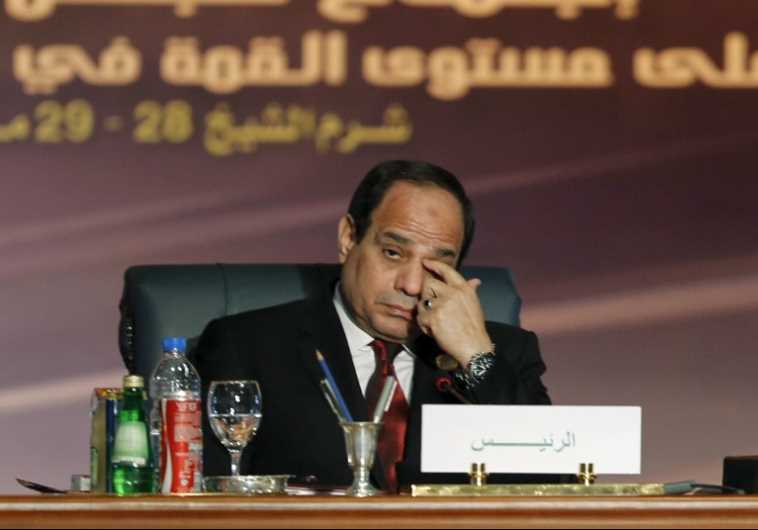'With violence spreading, Egypt's Sisi needs to change strategy'
Former Pentagon official says in the Sinai, the counterinsurgency campaign is going to have to incorporate economic and educational components.
 Egyptian President Abdel Fattah al-Sisi.(photo credit: AMR ABDALLAH DALSH / REUTERS)
Egyptian President Abdel Fattah al-Sisi.(photo credit: AMR ABDALLAH DALSH / REUTERS)